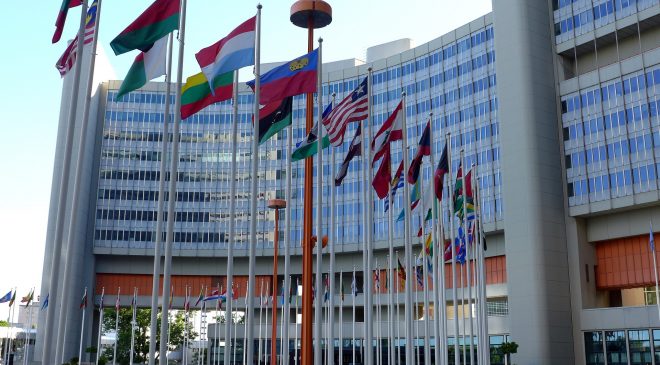
Will be hosted for the first time in Asia.
The Seoul UN Peacekeeping Ministerial will be hosted for the first time in Asia and will serve as a platform for Member States to strengthen their support to UN Peacekeeping.
Hundreds of people from across the world including foreign and defence ministers, heads of international organizations, academics, and journalists are expected at the conference to enhance the impact of the UN’s twelve peacekeeping operations
The two-day event is the latest in a series of meetings at the head of State, Government, or ministerial level since 2014. The last was held in 2019 in New York.
Under-Secretary-General for Peace Operations, said that peacekeepers “are facing increasingly daunting challenges.”
“They need support from the Secretariat, and they need support from our Member States and that’s really what we expect from the Seoul meeting”, he explained.
In March, Secretary-General António Guterres launched a new implementation strategy for the Action for Peacekeeping (A4P) initiative called A4P+. The objective is to accelerate progress on collective goals set out in the Declaration of Shared Commitments on UN Peacekeeping, adopted in 2018 by 154 Member States and four partner organizations.
Lacroix said that the Peacekeeping Ministerial is a crucial opportunity to garner political support for peacekeeping operations from the international community, including for the seven priorities that are comprised in A4P+.
“There have seen a number of achievements,” stressed Under-Secretary-General Lacroix, underscoring improvements on the safety and security of peacekeepers, on equipment, and performance assessment, as well as a significant increase in the number of women in peacekeeping. “But we need to do more and that’s the purpose of what we call Action for Peacekeeping+.”
Meanwhile, Under-Secretary-General for Operational Support Atul Khare, added that the complex environments in which the missions operate require creative and agile solutions.
“Technology can make our missions and camps ‘smarter,’ more integrated, efficient, effective, safer and allow for end-to-end service delivery and operational support while minimizing environmental footprint”, he explained.
In this area, the Ministerial will draw on the Strategy for the Digital Transformation of UN Peacekeeping.
Technology can also help provide timely and quality medical care to peacekeepers.
“We have made important progress in addressing the gaps in medical support in peacekeeping missions, but much more needs to be done”, Khare said.
During the event, he expects Member States to contribute to several initiatives, such as a new Casualty Tracking System, a Mental Health Strategy for uniformed personnel, and a Public Health Surveillance System.
Women and environment
Women, Peace, and Security, which has been a key focus of previous Ministerial meetings, will have a dedicated side event.
The Under-Secretary-General highlighted the “urgency” of accelerating this agenda, saying “gender parity is a non-negotiable priority, and it’s more than a numbers issue”.
“There is abundant evidence that shows how women’s participation improves peacekeeping performance”, he explained.
As reducing the carbon footprint of peacekeeping missions is a key environmental objective, Khare hopes to see Member States discuss opportunities to curtail its impact.
The event is a follow-up conference to the UN Leaders’ Summit on Peacekeeping in 2015, which was co-hosted by former President of the United States Barack Obama and former UN Secretary-General Ban Ki-moon.
UN Peacekeeping helps countries torn apart by conflict to create conditions for lasting peace.
Its unique strengths include legitimacy, burden sharing, and an ability to deploy and sustain troops and police from around the globe – integrating them with civilian peacekeepers to advance multidimensional mandates.
Over the past 70 years, more than one million men and women have served under the UN flag in more than 70 UN peacekeeping operations.




